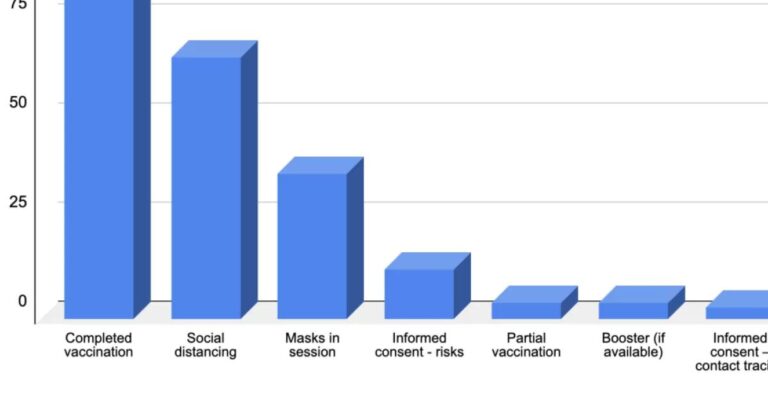A Participant’s Guide to the World of Clinical Trials
Introduction to Clinical Trials
Clinical trials are meticulously designed research studies conducted in humans to evaluate the effects of medical, surgical, or behavioral interventions. They play a crucial role in developing new treatments and determining their safety and efficacy. These trials investigate critical hypotheses and fill gaps in medical knowledge, often leading to peer-reviewed journals. Their outputs contribute to the global medical knowledge pool and shape future healthcare policies. Clinical trials are at the heart of medical research. They offer participants an opportunity to be on the frontline of medical advancements, particularly in areas such as clinical trials for breast cancer. Clinical trials provide valuable insights into medical science advancements and inform participants about their contributions. Participation in these trials allows access to advanced therapies and contributes to scientific knowledge that could shape future healthcare. Participants gain firsthand access to life-saving treatments and provide valuable data for researchers. Understanding the trials’ components empowers potential candidates to make informed decisions about their involvement.
The Structure of Clinical Trials
The architecture of clinical trials is carefully structured into sequential phases to ensure comprehensive data collection. Phase I trials are initial studies in small cohorts to assess new interventions’ safety and appropriate dosage. In Phase II trials, the scope broadens, with larger groups tested to determine efficacy and further safety evaluations. By Phase III, thousands of participants may be involved, with trials aiming to confirm effectiveness, monitor side effects, and benchmark the intervention against existing standard treatments. Understanding these phases and their objectives reinforces the importance of regulatory oversight, such as that provided by the FDA, which ensures compliance with health and safety regulations. Such structures bolster scientific accuracy and assure participants of their safety in these well-regulated environments.
Who Can Participate in a Clinical Trial?
Eligibility to join clinical trials is determined by predetermined inclusion and exclusion criteria, which might consider factors such as age, gender, the specific type and stage of a disease, previous treatments, and other comorbidities. These stringent criteria are crucial for the integrity and success of trials as they ensure that results are scientifically valid and applicable to the target population. Notably, the push for greater diversity in trial participants is imperative, as it allows for generating data applicable across varied demographics. This inclusivity helps understand different responses to treatments in people of different genetic backgrounds, ultimately enhancing the generalizability of trial outcomes.
The Participant’s Experience
The journey of a clinical trial participant involves several comprehensive stages, starting with the enrollment process. This includes detailed screenings to confirm eligibility according to the trial’s specific criteria. Once enrolled, participants experience structured schedules involving treatments, regular monitoring, and follow-up assessments that might extend beyond the active phase of the trial. During this time, participants are encouraged to communicate openly with the trial team, report experiences or side effects, and adhere to outlined protocols. In addition to ensuring the gathering of high-quality data necessary for evaluating the effectiveness and safety of testing interventions, this participation role promotes a collaborative environment.
Safety and Ethical Considerations
Participants’ safety and ethical treatment are of prime importance in clinical trials. Oversight by Institutional Review Boards (IRBs) ensures that each study adheres to ethical guidelines and that the rights of participants are protected. An integral part of this framework is the informed consent process, designed to provide participants with a thorough understanding of the trial’s nature, its potential risks, and benefits. This informed consent reflects respect for participants’ autonomy and is complemented by the vigilant supervision of regulatory agencies like the FDA. These agencies impose and monitor strict safety standards to protect participants’ well-being while ensuring the scientific integrity of the data collected, thus fostering an environment of trust and reliability throughout the research community.
Common Myths and Misconceptions
Despite their widespread use, potential volunteers may be discouraged by the myths and misconceptions surrounding clinical trials. Misunderstandings about safety, the rigor of oversight, and the perceived role of participants as mere guinea pigs often surface. Educational campaigns and open dialogue about the stringent protocols and safeguards are essential in dispelling these myths. By fostering a more profound understanding, these efforts aim to encourage broader participation in clinical trials, which is critical to the success of medical research and the development of new treatments. These conversations boost trust in the system and highlight the personal and collective benefits of participating in these critical studies.
The Importance of Clinical Trials in Progressing Medical Science
Clinical trials are the engines of innovation within the medical sciences, pivotal for verifying the safety and effectiveness of cutting-edge treatments before they reach the public. They facilitate progress transcending individual disorders, addressing broader issues like chronic diseases. Historical breakthroughs, including vaccines for infectious diseases and targeted cancer therapies, showcase their transformative potential. Modern trials are increasingly integrated with technologies such as AI to enhance precision and analysis, pointing towards future trends in personalized medicine. Ultimately, the continuous evolution and adaptation of clinical trials are essential to catering to new healthcare challenges, ensuring they remain foundational to medical advancements worldwide and continue to enhance patient outcomes and public health.
Conclusion: Making Informed Decisions
Participating in clinical trials is a profoundly personal decision enriched with the potential to contribute significantly to medical research and patient care. Potential participants can make informed decisions by understanding how clinical trials operate within the contexts of safety, regulation, and ethical guidance. This empowered choice helps expand medical knowledge and ensures personal growth and understanding in the ever-evolving healthcare field. Participants are crucial in determining the direction of medicine by weighing the possible advantages against the hazards involved. They leave a legacy beyond their involvement and significantly impact science and humanity.
ALSO READ: Wellness Technology byPulsetto: Your Health and Well-being







